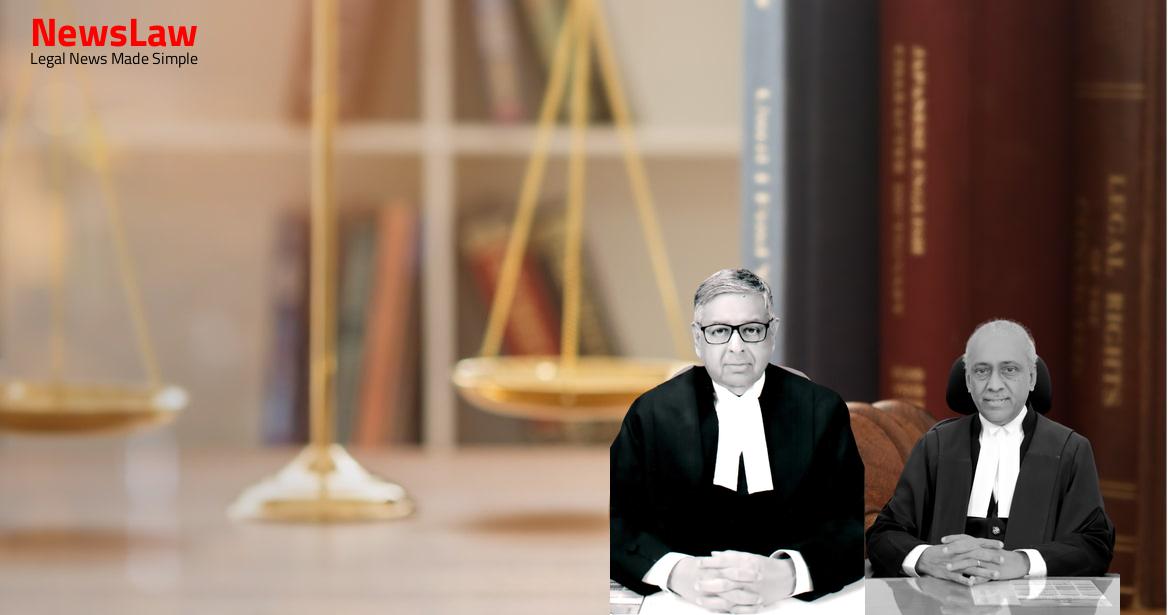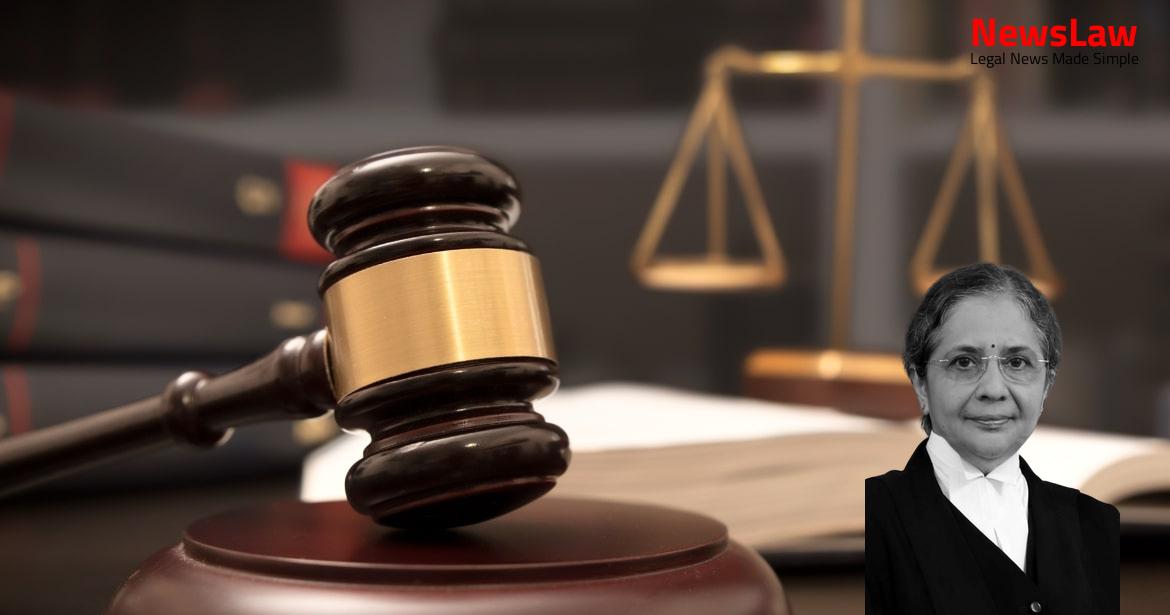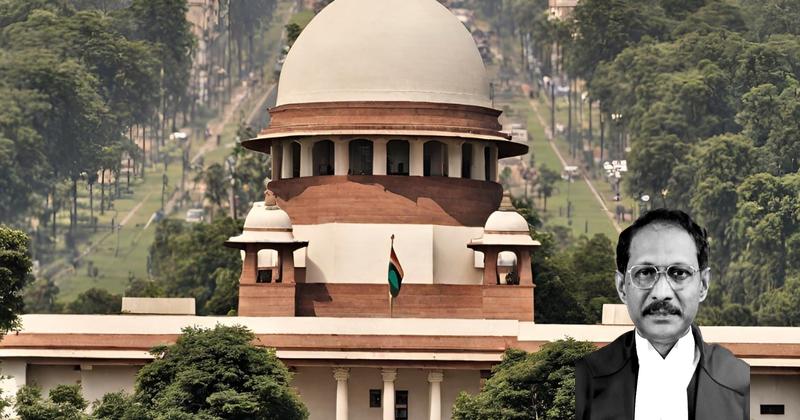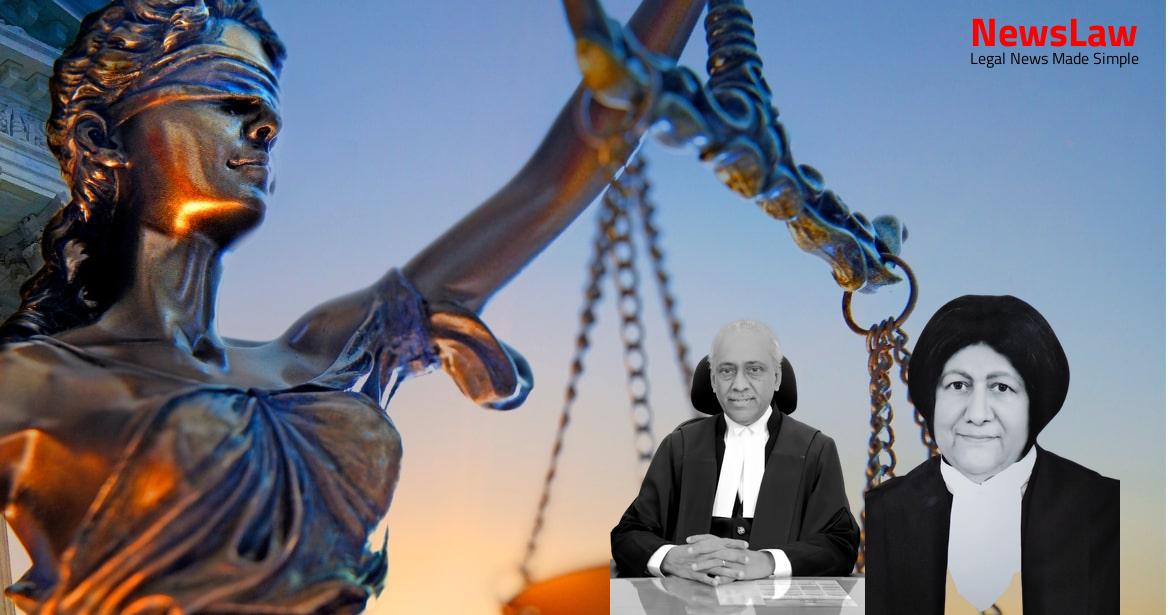In a landmark decision by the Supreme Court of India, the case involving the analysis of a compromise deed under Section 2(47) of the Income Tax Act has been thoroughly examined. The judgment delves into the taxation implications of the deed in a land transfer scenario. The ruling holds significance for property rights and capital gain assessment in such cases.
Facts
- Power of Attorney executed on 27.11.1998 appointing Chandan Kumar for sale agreements and deeds
- No Income Tax Return filed for Assessment Year 2004-2005
- Agreement between parties dated 19.07.2003
- Xerox copies of all land documents provided to the second party for scrutiny
- Permission given to start advertising, selling, and construction on the mentioned land
- Notice under Section 142(1) issued on 08.09.2009 for hearing on 20.09.2009
- Notice dated 04.11.2008 under Section 148 of the Income Tax Act served
- Extent of property approximately 100 grounds including areas for amenities
- Best Judgment Assessment Order passed under Section 144 on 31.12.2009
- Advertisements, sales catalogues, and leaflets to be approved by the first party before publication
Also Read: Court’s Jurisdiction in Re-appraising Arbitrator’s Findings
Issue
- The issue at hand is whether the compromise deed of 19.07.2003 can be considered to fall within any of the clauses under Section 2(47) for the purpose of taxing the capital gain in Assessment Year 2004-2005.
Also Read: Contrary Directions in Issuance of Letter of Intent
Arguments
- The High Court discussed the alternative argument that even if one argument fails, the case would fall within Section 2(47)(vi).
- The High Court affirmed the concurrent findings of the authorities in favor of the Revenue and against the assessee.
- Shri R. V. Easwar, the senior counsel for the appellant, elaborated on the three documents in question.
- The counsel argued that in this Assessment Year, there would be no transfer of a capital asset under Section 2(47) due to the specifics of the case.
- The counsel contended that Section 2(47)(v) of the IT Act applied based on the agreement to sell along with the Power of Attorney.
- Shri K. Radhkrishnan, senior counsel for the Revenue, supported the judgments.
- He referred to the Assessment Order, CIT (A) Order, ITAT, and High Court’s judgment.
- He stated that Section 2(47)(v) could not be applied to the facts of the case.
- He urged for dismissal of the appeal based on these grounds.
Also Read: Application for Stay in Civil Suit Rejected: Court’s Legal Analysis
Analysis
- The High Court did not consider the expression ‘or in any other manner whatsoever’ in sub-clause (vi) of Section 2(47), indicating that membership of a cooperative society is not necessary for the application of the provision.
- The purpose of Section 2(47)(vi) is to tax transactions where there is a de facto transfer of immovable property, even if legal title may not be transferred.
- The analysis focuses on whether the transaction in question falls within the provision of Section 2(47)(vi) by enabling the enjoyment of immovable property as a purported owner.
- The distinction between ‘transferring’ and ‘enabling the enjoyment of’ in the context of de facto transfer of immovable property is crucial for determining the application of the provision.
- The interpretation of ‘enabling the enjoyment of’ must be considered alongside ‘transferring’ to establish a de facto transfer of immovable property with extinguishment of the de facto owner’s rights.
- It is necessary to examine if the impugned transaction aligns with the criteria set out in Section 2(47)(vi) to determine its tax implications.
- In order for Section 53A of the Transfer of Property Act to be applicable, the transferee must have taken possession of the property or a part of it in part performance of the contract.
- Additionally, the transferee must have performed or be willing to perform their part of the agreement.
- The section specifies that the transferor or anyone claiming under them shall not enforce any right against the transferee in respect of the property, except as expressly provided in the contract.
- The provision also safeguards the rights of a transferee for consideration who had no notice of the contract or its part performance.
- The definition of ‘transfer’ under the Income Tax Act includes transactions related to allowing possession of immovable property in part performance of a contract as per Section 53A of the Transfer of Property Act, among other situations.
- The Act also clarifies that ‘transfer’ involves disposing of or parting with an asset, creating an interest in an asset in any manner, directly or indirectly, voluntarily or involuntarily.
- The clarification specifies that ‘transfer’ encompasses agreements entered into in India or outside India, ensuring a broad interpretation of the term.
- The Court looked into the provisions of sub-Section in question
- Highlighted the relevance of the provisions in the case
- Made specific references to the provisions to support their analysis
- The compromise deed confirms the agreement to sell and Power of Attorney, with a reduction of Rs.50 lakhs from the total consideration of Rs.6.10 crores.
- The appellant received Rs.4,68,25,644/- as part of the agreed sale consideration.
- All cheques mentioned in the compromise deed have been encashed.
- The orders under appeal could be supported by Section 2(47)(ii) and (vi) of the Income Tax Act as the assessee’s rights in the immovable property were extinguished on receiving the last cheque.
- The compromise deed could be considered a transaction effecting the transfer of the immovable property in question.
- As of the agreement to sell, the owner’s rights were intact in terms of ownership and possession, thus Section 2(47) of the Income Tax Act is not applicable.
Decision
- Balance of Rs.1.05 crores to be paid towards full and final settlement.
- Payment to be made by 7 post-dated cheques.
- Last two cheques will be presented only upon receipt of discharge certificate from M/s. Pioneer Homes.
Case Title: M/S SESHASAYEE STEELS P.LTD.TR.M.D. Vs. ASSTT.COMMR.OF I.T, CO. CIR-VI(2)CHENNAI
Case Number: C.A. No.-009209-009209 / 2019



